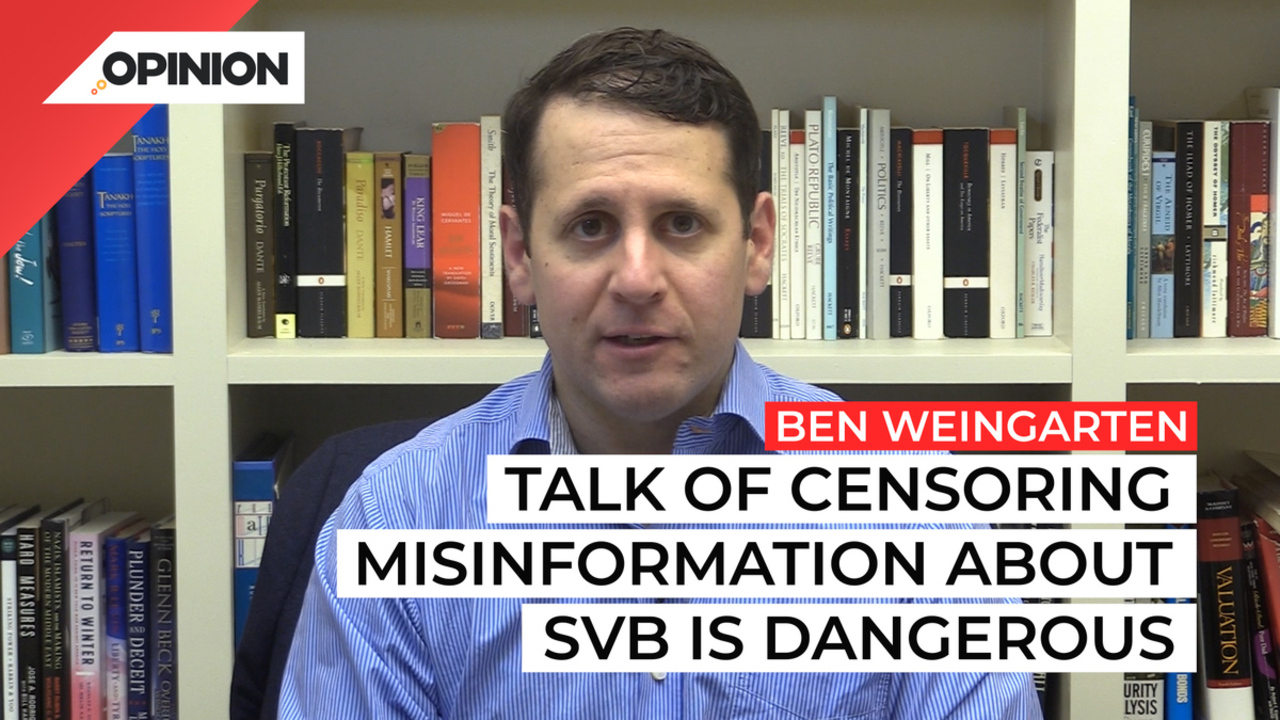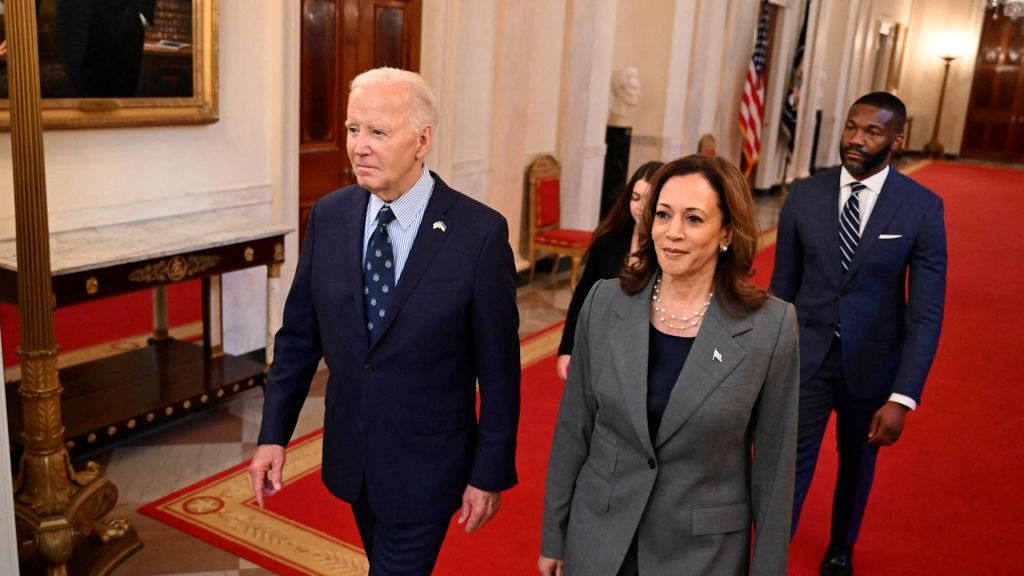
Commentary
-
Our commentary partners will help you reach your own conclusions on complex topics.
With the collapse of Silicon Valley Bank, the second-largest such failure in American history, any number of major storylines have emerged.
Would there be contagion? What would the consequences be of this massive bailout that authorities won’t call a bailout, of the bank’s largely uninsured depositors – and how great will the costs ultimately run? Why did this bank in particular get this support? Was Washington D.C. favoring Silicon Valley and the startups and venture capitalists so exposed to it? Where do interest rates go now? Who was most culpable – the Fed for blowing this massive bubble in financial assets, and encouraging broader speculation and risk-taking that helped make SVB so large, then punctured it – or the banks’ executives who took on totally unhedged risk leading to the collapse? What will the political effects be?
There are going to be many threads to pull at in the weeks ahead. But did you catch this one? In a call between members of Congress, their staffers, and representatives of the Fed, Treasury, and FDIC on Sunday, March 12, when the non-bailout bailout of SVB was being announced – prior to market opening – Democrat Senator Mark Kelly asked a question. According to Republican Congressman Thomas Massie, Kelly asked, in Massie’s words, “if there was a program underway on social media to censor information that would lead to a bank run.” Massie told journalist Michael Shellenberger’s “public” Substack that “I believe he couched it in a concern that foreign actors would be doing this. But he didn’t suggest the censorship should be limited to foreigners or to things that were untrue. The people from the three agencies couldn’t answer him and just sort of took a pass on the question.”
“On the briefing,” a Kelly spokesperson would later say, the “Senator…asked about foreign adversaries potentially trying to take advantage of this situation by spreading misinformation.” There are two disturbing aspects to this. One is that the Senator has now raised yet another area of subject matter ripe for censorship.
Spreading unauthorized views about the financial markets is now apparently something U.S. Senators believe demands intervention –seemingly First Amendment threatening intervention since he was talking to government agencies or at best quasi-private ones about working with social media companies to suppress speech.
One wonders, what speech will be subject to regulation? Everyone has an opinion in financial markets. Rumors always proliferate about companies.
What people say and don’t say can always have an effect on financial markets. Imagine the kinds of problems you’d run into trying to regulate speech about the health of companies. Bullish research of companies that go bust? Are we going to ban bearish financial research now? What about ridiculously bullish research about companies that end up going bust? If a random guy tweets that he sees cracks in a business model, or a bank is too highly leveraged, or store shelves at a retailer are empty, is that grounds for censorship? The possibilities are endless. Let’s say Sen. Kelly qualified this in terms of combatting “foreign interference,” as has been presented. This shouldn’t inspire confidence either.
Remember, as the Twitter Files showed, the FBI used allegations of “foreign interference” as a cover to pursue domestic wrongthink, as its 80-agent-strong Foreign Interference Task Force coordinated with Twitter.
Remember, this all started with false claims of Trump-Russia collusion and wildly overstated claims of Russian interference in the 2016 election – justifying the moral panic over mis-, dis-, and mal-information, and opening the door to a transition from targeting “foreign interference” to domestic speech.
Another aspect of our mass public-private censorship regime was the morphing of the government’s focus on defending critical infrastructure – like, say, the grid – to re-casting almost everything as infrastructure, and using that as a pretext to censor views on myriad issues the government doesn’t approve of.
Questions about the integrity of elections themselves were cast as an assault on critical election infrastructure by the likes of DHS’s Cybersecurity and Infrastructure Security Agency, and used to target Wrongthinkers accordingly.
As Mike Benz, a former State Department Cyber Officer now serving as the Executive Director of the Foundation for Freedom Online has flagged, CISA’s advisory committee produced a report in June 2022 noting that The spread of false and misleading information poses a significant risk to critical functions like elections, public health, [and] financial services.”
Among its recommendations were that CISA should focus on “risks undermining critical functions of American society,” including mis- and dis-information “that undermines…the financial system.”
The subcommittee making those recommendations was led by those who played a major role in 2020 DHS-tied censorship efforts, including Vijaya Gadde, the now-fired Twitter executive who led its censorship coordination with the feds, and Kate Starbird, chair of the subcommittee who helped run some of the cutouts the feds used as a conduit to pass on their censorship request/demands to the likes of Twitter.
So this concept is already out there. There’s apparently almost nothing now our government won’t consider censoring – like all tyrannies — for the benefit of their victims.
It’s arguably illegal, immoral, and practically it’s devastating. If you don’t let ideas and information flourish – if you have a Ministry of Truth – it leads to disaster. Societies built on lies not only lack trust, but they collapse because the truth ultimately always prevails, and forestalling truth leads to infinitely more pain, suffering, and chaos. Ideas need to be able to compete, and then the best ones win. But, as in financial markets, our betters don’t really believe in freedom in the marketplace of ideas. They believe in maintaining their power. We all lose because of it.
-
Trump is right, Palestinians must be relocated out of Gaza
On Saturday, Feb. 1, U.S. President Trump spoke with Egyptian President Abdul Fatah el-Sisi, urging him and Jordan’s King Abdullah II to accept at least 1.5 million Palestinian survivors of the war in Gaza. Critics have attacked the proposal as tantamount to forced displacement and ethnic cleansing — Donald Trump, in his own words, suggested… -
Trump’s Jan. 6 pardons aim to restore liberty, justice
President Trump has defended his decision to issue pardons and halt prosecutions for the more than 1,500 individuals charged in connection with the Jan. 6, 2021 Capitol attack. The pardons included violent extremists who had been convicted of assaulting law enforcement officers and of plotting sedition against the United States. Some Republicans — and even… -
Trump, Congress must protect First Amendment
During the COVID-19 pandemic, federal government agencies began corresponding with private social media companies like Facebook to regulate sensitive public health information and to suppress certain COVID-19 misinformation which they believed could present an existential threat to U.S. public health. Some Americans felt that this relationship went too far, however, saying that it violated the… -
Is Meta’s free speech overhaul a power play or real change?
On Jan. 7, Meta CEO Mark Zuckerberg announced major changes to the company’s content moderation policies. He pledged to “get rid of fact-checkers and replace them with Community Notes similar to X.” Supporters of Zuckerberg’s pivot view this as a win for the First Amendment, promoting more free expression on the platform. Critics, however, argue… -
Trump must confront jihadism and Islamist supremacism
At least 14 revelers celebrating New Year’s on Bourbon Street in New Orleans have died after 42-year-old U.S. Army veteran Shamsud-Din Jabbar used a rented Ford pick-up truck to run over as many civilians as he could. The FBI is classifying this as a deliberate act of terrorism. The suspect, heavily armed and wearing body…
Latest Opinions
-
 No Fallen Heroes
No Fallen Heroes
Exploring the role of psychedelics in healing PTSD among veterans: Weapons and Warfare
-
 AP Images
AP Images
Student protests erupt in LA over Trump administration’s immigration policies
-
 Getty Images
Getty Images
US officials receptive to El Salvador prison offer
-
 Getty Images
Getty Images
Quarterbacks Patrick Mahomes, Jalen Hurts, prepare for Super Bowl rematch
-
 Getty Images
Getty Images
Musk adds companies to lawsuit challenging X ad boycott
Popular Opinions
-
In addition to the facts, we believe it’s vital to hear perspectives from all sides of the political spectrum.






